Managing diabetes effectively involves a careful balance of diet, exercise and sometimes medication. While fresh fruits are often recommended for their natural sugars and fiber, dry fruits can also play an essential role in a diabetes-friendly diet when consumed in moderation. Packed with essential nutrients, antioxidants, and healthy fats, the right selection of dry fruits can help regulate blood sugar levels and improve overall health. In this article, we explore the 10 best dry fruits for diabetic patients to control diabetes, highlighting their benefits and how to include them into your diet.
1. Almonds
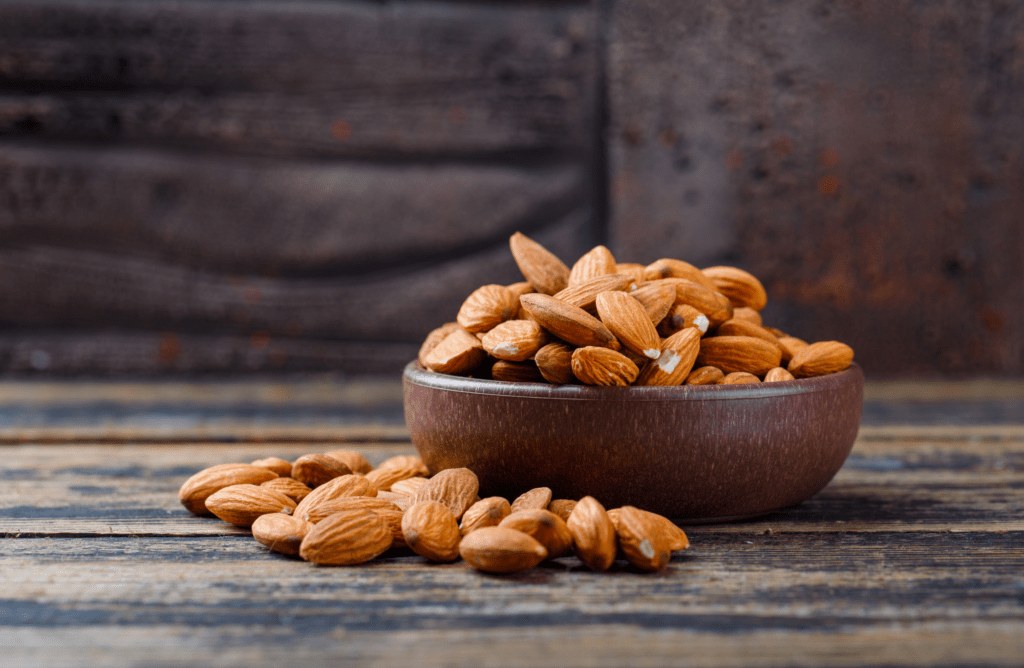
Almonds are among the most popular dry fruits for diabetic patients to control diabetes. They are rich in magnesium, which plays a crucial role in improving insulin sensitivity. Almonds also contain healthy fats, fiber, and protein, which help stabilize blood sugar levels after meals.
Nutritional Profile (per 28g/1 ounce):
- Calories: 164
- Protein: 6g
- Carbs: 6g
- Fiber: 3.5g
- Healthy Fats: 14g
A handful of almonds (about 20-25 pieces) can be a good snack or added to salads and smoothies for extra crunch and nutrition.
2. Walnuts
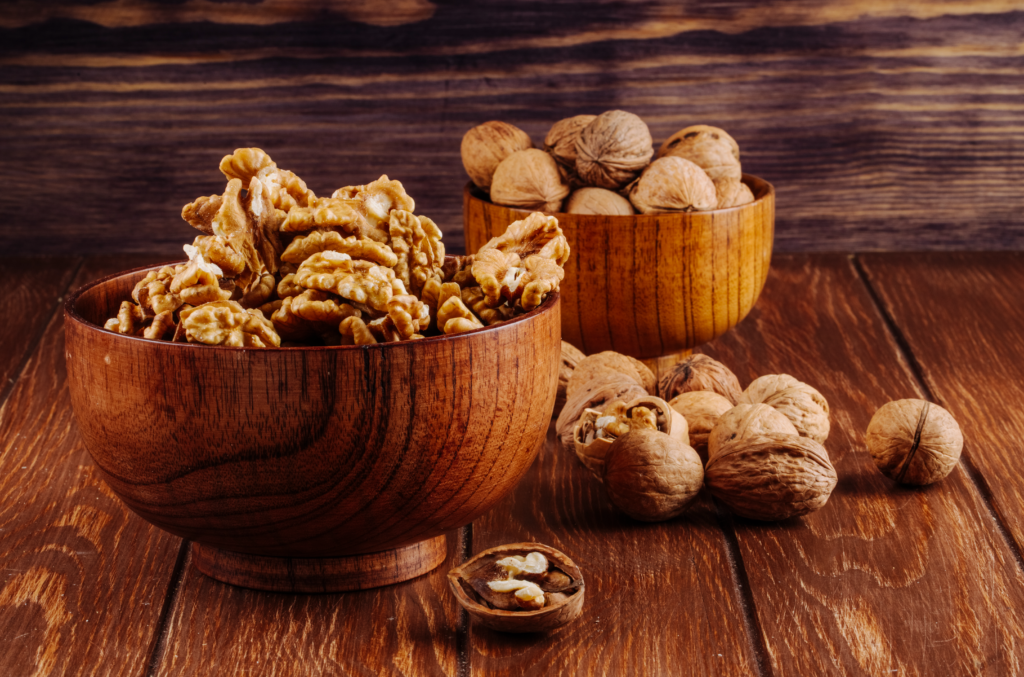
Walnuts are another excellent option for diabetic patients. They are loaded with omega-3 fatty acids, which help reduce inflammation and support heart health—a critical concern for diabetics. Walnuts’ unique combination of nutrients, including alpha-linolenic acid and polyphenols, helps maintain steady blood sugar levels.
Nutritional Profile (per 28g/1 ounce):
- Calories: 185
- Protein: 4.3g
- Carbs: 4g
- Fiber: 2g
- Healthy Fats: 18g
Include 4-5 walnut halves in your daily diet for optimal benefits. They are one of the most beneficial dry fruits for diabetic patients to control diabetes.
3. Cashews
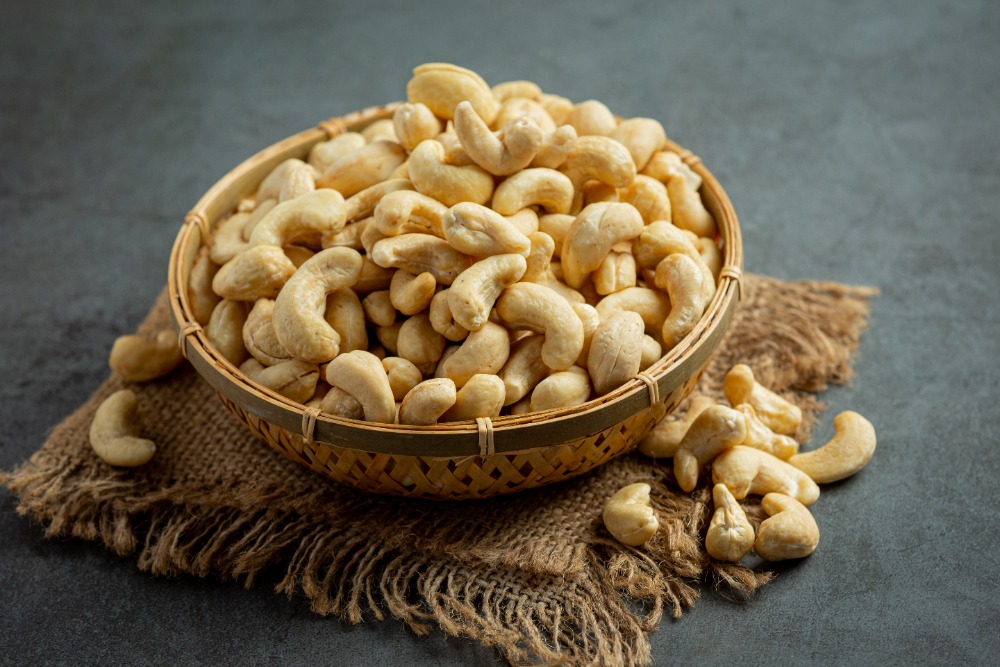
While cashews are higher in carbs than some other dry fruits, their glycemic index is relatively low and makes them suitable for moderate consumption. Cashews contain healthy monounsaturated fats, which can help improve cholesterol levels and reduce cardiovascular risks associated with diabetes.
Nutritional Profile (per 28g/1 ounce):
- Calories: 157
- Protein: 5g
- Carbs: 9g
- Fiber: 1g
- Healthy Fats: 12g
Add a small handful to your meals, but avoid salted or roasted varieties to keep them as healthy as possible. This makes them a reasonable choice among dry fruits for diabetic patients to control diabetes.
4. Pistachios

Pistachios are a low-calorie and protein-packed dry fruit that can help with weight management—a vital factor in diabetes control. Studies suggest that pistachios improve glycemic control and lower post-meal blood sugar spikes.
Nutritional Profile (per 28g/1 ounce):
- Calories: 159
- Protein: 6g
- Carbs: 8g
- Fiber: 3g
- Healthy Fats: 13g
Snack on a small portion of unsalted pistachios or incorporate them into your yogurt and oatmeal for a diabetes-friendly treat. They are a smart addition to the list of dry fruits for diabetic patients to control diabetes.
5. Dates (In Moderation)

Dates are naturally sweet and often misunderstood in the context of diabetes. While they are higher in natural sugars, dates have a low-to-moderate glycemic index when consumed in small quantities. Their fiber content helps manage and slow down sugar absorption, making them a reasonable choice among dry fruits for diabetic patients to control diabetes.
Nutritional Profile (per 2 dates/48g):
- Calories: 133
- Protein: 1g
- Carbs: 36g
- Fiber: 3.2g
- Healthy Fats: 0g
Limit your intake to 1-2 dates per day and pair them with nuts for a balanced snack.
6. Figs (Anjeer)
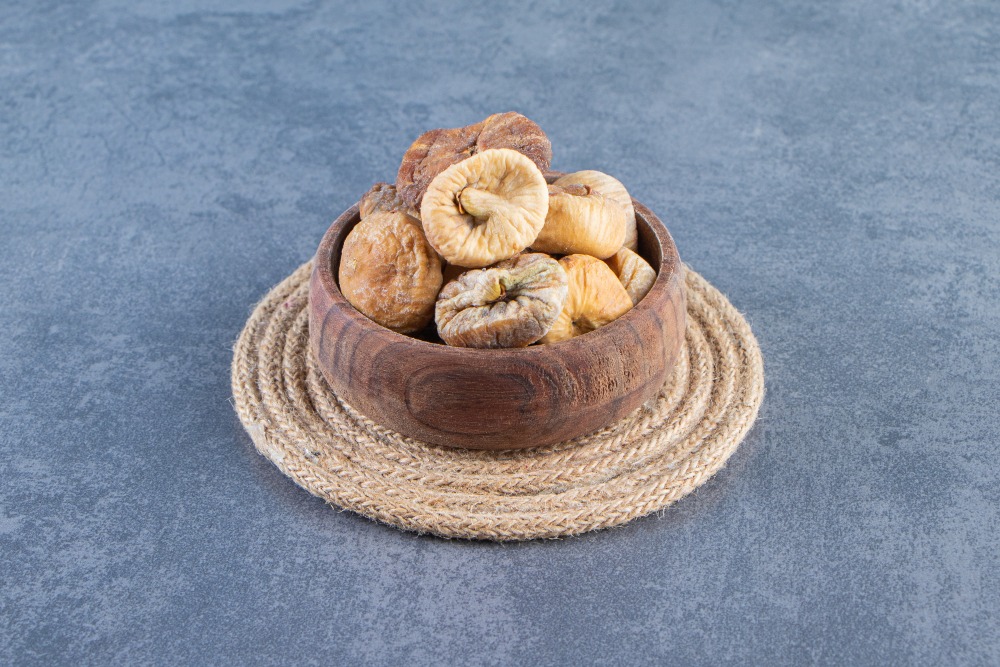
Figs are nutrient-dense and an excellent source of dietary fiber, which helps regulate digestion and slow the release of sugar into the bloodstream. They also contain potassium, calcium, and antioxidants that benefit overall health.
Nutritional Profile (per 28g/4 dried figs):
- Calories: 84
- Protein: 1g
- Carbs: 21g
- Fiber: 4g
- Healthy Fats: 0g
Fresh or dried figs can be enjoyed in small quantities, making them a beneficial option for diabetic patients. Including figs in your diet is another way to enjoy dry fruits for diabetic patients to control diabetes.
7. Raisins
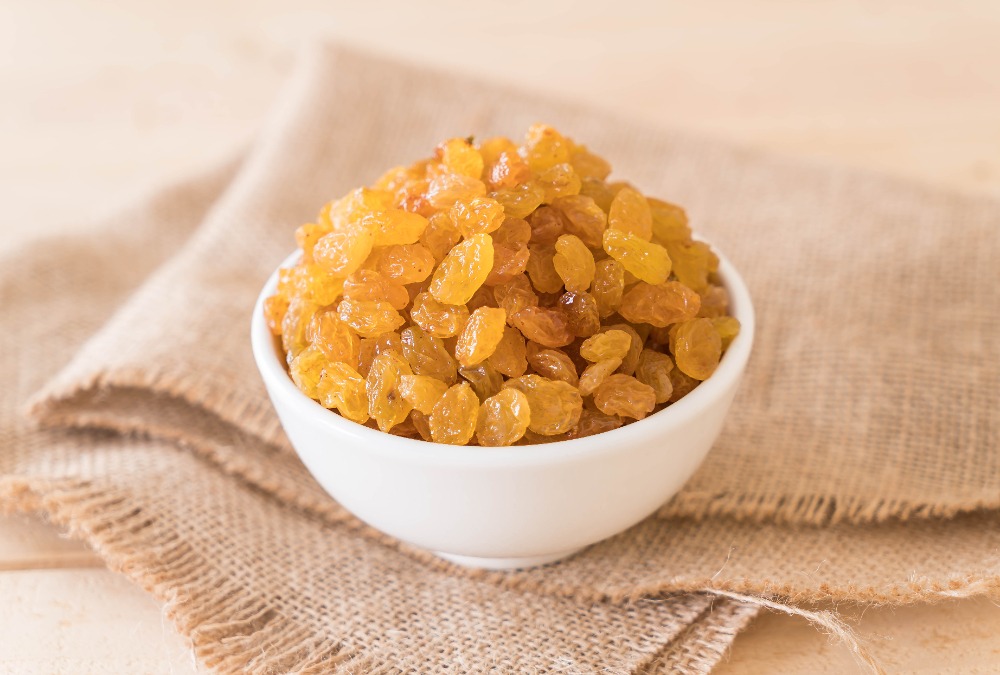
Raisins, though high in natural sugars, have a low glycemic index when consumed in moderation. They are filled with antioxidants, particularly polyphenols, which can help reduce oxidative stress and inflammation—both critical factors in diabetes management.
Nutritional Profile (per 28g/1 ounce):
- Calories: 85
- Protein: 1g
- Carbs: 22g
- Fiber: 1g
- Healthy Fats: 0g
A small handful of raisins can be added to salads or whole-grain cereals for a touch of natural sweetness without increasing blood sugar levels. Raisins are a sensible option when selecting dry fruits for diabetic patients to control diabetes.
8. Apricots (Dried)
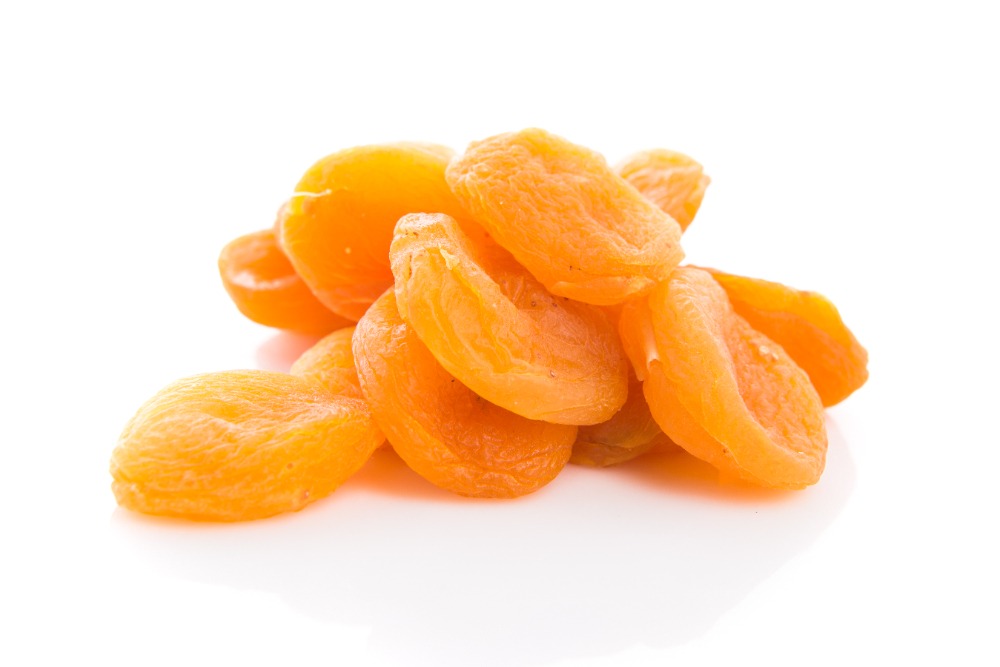
Dried apricots are a diabetes-friendly dry fruit thanks to their low glycemic index and high fiber content. They are also rich in vitamin A and potassium, promoting better digestion and cardiovascular health.
Nutritional Profile (per 28g/4 dried apricots):
- Calories: 67
- Protein: 1g
- Carbs: 18g
- Fiber: 2g
- Healthy Fats: 0g
Incorporate 2-3 dried apricots into your snacks or mix them into a trail mix with nuts for a balanced and nutritious option. This makes apricots a great addition to the best dry fruits for diabetic patients to control diabetes.
9. Prunes
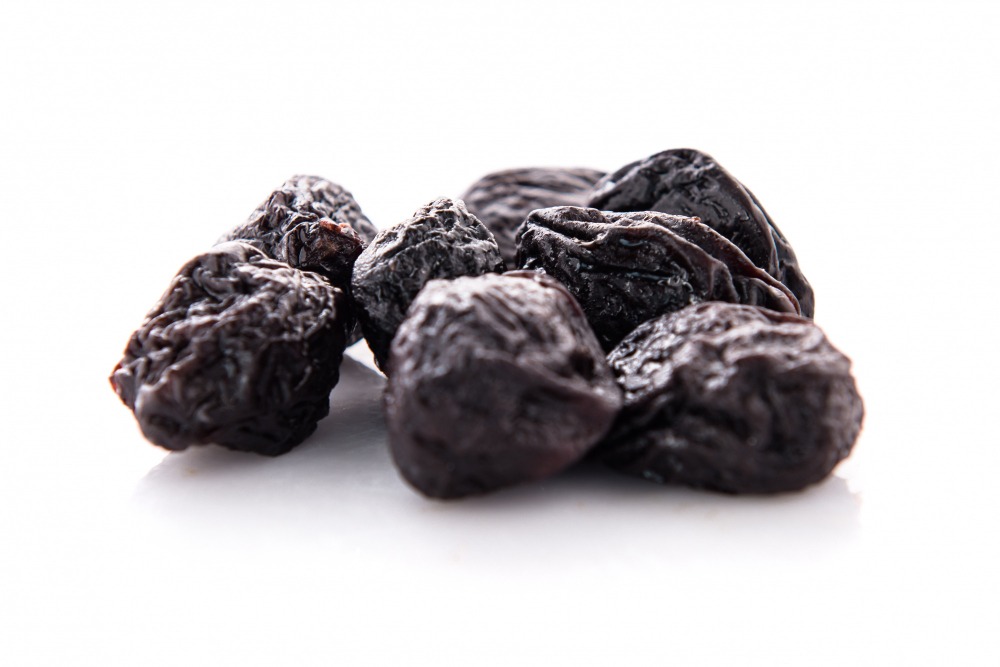
Prunes are dried plums that offer a wealth of health benefits for diabetic patients. They’re high in fiber and have a low glycemic index, making them a great option for stabilizing blood sugar.
Nutritional Profile (per 28g/2-3 prunes):
- Calories: 67
- Protein: 0.6g
- Carbs: 18g
- Fiber: 2g
- Healthy Fats: 0g
Prunes also support digestive health and bone density due to their high vitamin K and potassium content. Limit your intake to 2-3 prunes per day to enjoy their benefits without overloading on natural sugars. As such, they are an essential choice of dry fruits for diabetic patients to control diabetes.
10. Hazelnuts
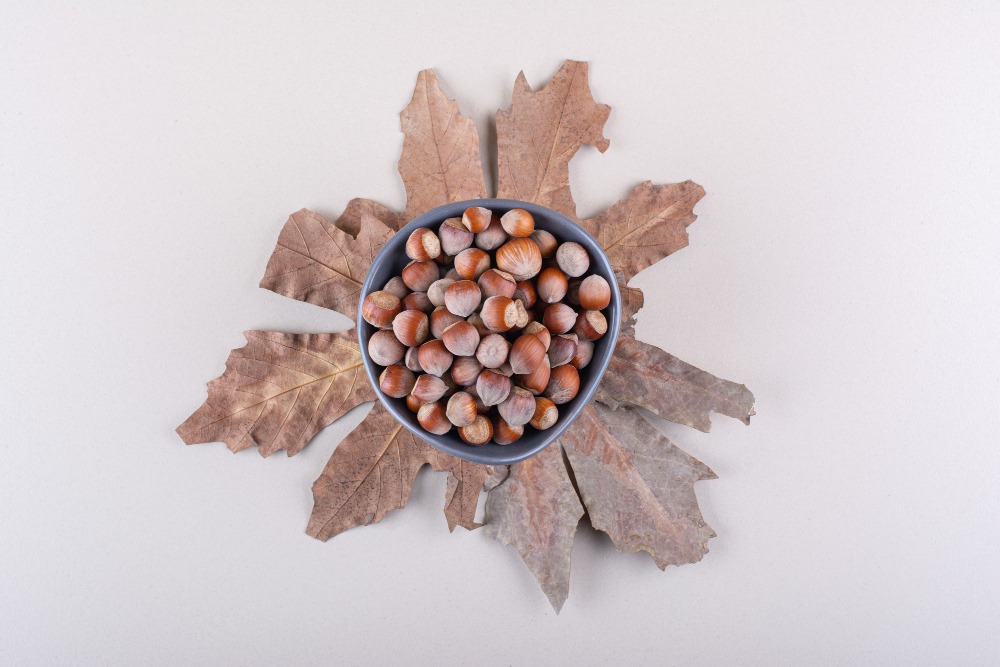
Hazelnuts are a lesser-known but excellent dry fruit for diabetic patients to control diabetes. They’re packed with healthy fats, magnesium, and antioxidants, which improve insulin sensitivity and reduce inflammation.
Nutritional Profile (per 28g/1 ounce):
- Calories: 178
- Protein: 4g
- Carbs: 4.7g
- Fiber: 2.7g
- Healthy Fats: 17g
Include a small handful in your diet by adding hazelnuts to your smoothies, salads, or as a standalone snack. Hazelnuts perfectly round out the list of dry fruits for diabetic patients to control diabetes.
For expert guidance on managing diabetes and understanding how to incorporate dry fruits into your diet, consult a specialist endocrinologist at Basaveshwar Hospital.
How to Incorporate Dry Fruits Into a Diabetes-Friendly Diet
While dry fruits offer numerous health benefits, portion control is crucial for diabetic patients. Overeating dry fruits can lead to blood sugar spikes due to their concentrated natural sugars. Here are some tips to enjoy dry fruits without compromising your diabetes management:
- Stick to Small Portions: A handful (20-30 grams) of dry fruits per day is sufficient. Spread them out across meals rather than consuming them all at once.
- Pair with Protein or Healthy Fats: Combine dry fruits with nuts, seeds, or yogurt to slow sugar absorption and stabilize blood sugar levels.
- Avoid Sweetened or Processed Varieties: Choose unsweetened, raw, or minimally processed dry fruits to avoid added sugars and preservatives.
- Use as a Garnish: Add small amounts of dry fruits to your salads, cereals, or desserts instead of eating them alone.
- Monitor Blood Sugar Levels: Test your blood sugar regularly to understand how specific dry fruits affect your levels and adjust your intake accordingly.
The Nutritional Advantage of Dry Fruits
Dry fruits are nutrient dense powerhouses, offering a concentrated source of vitamins, minerals, fiber and antioxidants. For diabetic patients the key lies in selecting the right dry fruits and consuming them in controlled portions. By doing so, you can grab their health benefits without causing blood sugar spikes. Here are some general advantages of incorporating dry fruits into your diet:
- Rich in Antioxidants: Helps in reducing oxidative stress and inflammation.
- High in Fiber: Helps in digestion and slow sugar absorption.
- Healthy Fats: Support heart health and improve insulin sensitivity.
- Essential Minerals: Provide magnesium, potassium and calcium for overall well-being.
Final Thoughts
Choosing the right dry fruits for diabetic patients to control diabetes can make a significant difference in managing blood sugar levels. Almonds, walnuts, pistachios and other options mentioned above are excellent choices when consumed in moderation. By incorporating these nutrient dense snacks into your diet, you can not only control diabetes but also boost your overall health.
Remember, while dry fruits can be a healthy addition, they should complement a well-balanced diet rich in whole grains, vegetables, lean proteins, and healthy fats. Always consult your healthcare provider or a registered dietitian before making significant changes to your diet, especially if you have diabetes.
By following these guidelines and enjoying the 10 best dry fruits for diabetic patients to control diabetes, you can take a proactive step toward better health and diabetes management.
Frequently Asked Questions
1. Are dry fruits safe for diabetic patients to eat daily?
Yes, dry fruits are safe for diabetic patients when consumed in moderation. Portion control and choosing unsweetened, natural varieties are key to preventing blood sugar spikes.
2. Which dry fruit is best for controlling diabetes?
Almonds, walnuts, and pistachios are some of the best dry fruits for diabetic patients as they have a low glycemic index, are rich in healthy fats, and help stabilize blood sugar levels.
3. Can diabetic patients eat dates or raisins?
Yes, diabetic patients can eat dates and raisins, but only in small quantities. They have natural sugars but a low-to-moderate glycemic index, making them safe when consumed in moderation and paired with proteins or healthy fats.
4. How much dry fruit can a diabetic patient consume daily?
Diabetic patients should limit their intake to about 20-30 grams (a small handful) of mixed dry fruits per day, divided across meals to avoid sudden sugar spikes.
5. Why are dry fruits recommended for diabetic patients?
Dry fruits are nutrient-dense and provide essential vitamins, minerals, fiber, and antioxidants that help regulate blood sugar levels, improve heart health, and reduce inflammation, all of which are crucial for managing diabetes.
Image Credits: FreePik

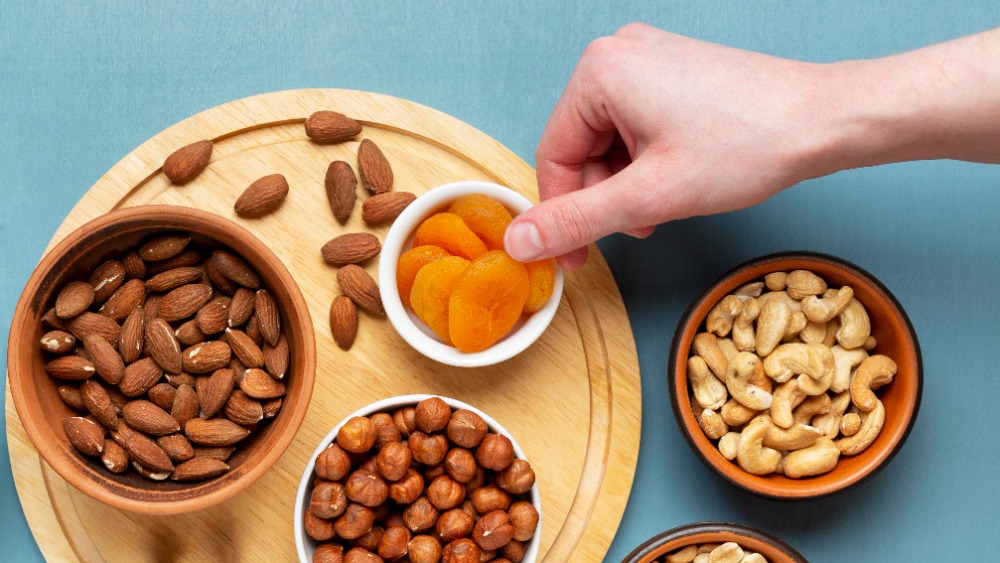

Pingback: Causes of Heart Attack in Men and How to Prevent
Pingback: Yellow Fungus Symptoms and How to Spot Them Early
Pingback: 12 Amazing Banana Flower Health Benefits
Pingback: 12 Amazing Betel Leaf Health Benefits You Should Know